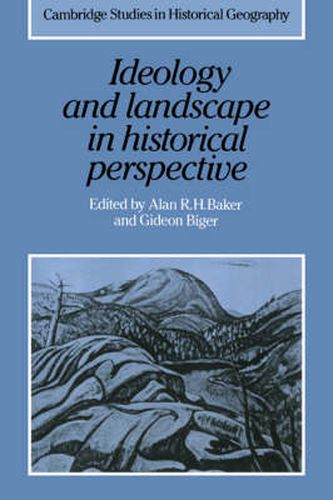Readings Newsletter
Become a Readings Member to make your shopping experience even easier.
Sign in or sign up for free!
You’re not far away from qualifying for FREE standard shipping within Australia
You’ve qualified for FREE standard shipping within Australia
The cart is loading…






Landscapes of material are also landscapes of meaning: praxis is itself symbolic, and all landscapes are symbolic in practice. Ideology and landscape in historical perspective draws together fifteen historical geographers to examine landscapes as messages to be decoded, as signs to be deciphered. The range of examples is wide in terms of period, from the medieval to the modern, and of place, embracing the USA, Canada, Palastine, Israel, South Africa, India, Singapore, France and Germany. Each essay addresses a specific problem, but collectively they are principally concerned with the ideologies of religion and of politics, of church and state, and their historical impress upon landscapes. The book is introduced by an essay which explores the dialectical understanding of landscapes, and landscapes as expressions of the connection of an ideology to a quest for order, to an assertion of authority and to a project of totalization. The issues raised by landscapes and their meanings - issues of individual and collective action, of objective knowing, of materialist and idealist explanation - are fundamental not only to historical geography but to any humanistic study, and render the geographical study of landscapes of interest to scholars in many disciplines.
$9.00 standard shipping within Australia
FREE standard shipping within Australia for orders over $100.00
Express & International shipping calculated at checkout
Landscapes of material are also landscapes of meaning: praxis is itself symbolic, and all landscapes are symbolic in practice. Ideology and landscape in historical perspective draws together fifteen historical geographers to examine landscapes as messages to be decoded, as signs to be deciphered. The range of examples is wide in terms of period, from the medieval to the modern, and of place, embracing the USA, Canada, Palastine, Israel, South Africa, India, Singapore, France and Germany. Each essay addresses a specific problem, but collectively they are principally concerned with the ideologies of religion and of politics, of church and state, and their historical impress upon landscapes. The book is introduced by an essay which explores the dialectical understanding of landscapes, and landscapes as expressions of the connection of an ideology to a quest for order, to an assertion of authority and to a project of totalization. The issues raised by landscapes and their meanings - issues of individual and collective action, of objective knowing, of materialist and idealist explanation - are fundamental not only to historical geography but to any humanistic study, and render the geographical study of landscapes of interest to scholars in many disciplines.